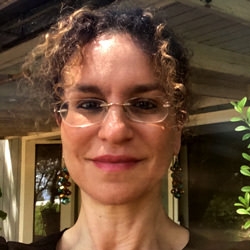

NVC Resources on Trauma
-
One clue we have trauma is when we respond in a way we don't want (eg. being reactive, self sabotaging, etc). Even when we have high level NVC skills our trauma-related mechanisms can activate, and we can lose access to well honed NVC skills. Read on for approaches that involve healing trauma, and approaches that involve managing the effects of trauma and preventing additional trauma.
-
Transform inner messages rooted in childhood trauma, healing through compassionate connection.
-
Our everyday personal experiences of diminishment, and the destruction of our planet has a through-line. Societal traumas lead to us shutting down to avoid pain, and this limits us. The avoidance shifts our brains so we don’t see other beings, species and our planet as wondrous, precious and irreplaceable. Thus, we meet others with diminishment, oblivion, or abuse; trauma keeps passing on. This leads to being blind and mute, and to othering based on social location, and to destruction of our planet.
-
When empathy falls short, uncover strategies and heal patterns through unconscious contract work.
-
What happens when empathy isn't enough?When you and the people you love keep getting into the same argument again and again with no resolution or change, it can feel deeply distressing. It may even be challenging to hold on to hope. Realizing what trauma is – a phenomenon that affects us all – increases your self-compassion and gives you solid ground to stand on. Then, when you begin to integrate the tool of unconscious contract work, you can become intimate with your own survival strategies and those of the people you love.
-
Discussion into the difficult topic of parenting, childhood trauma, and social status.
-
One way to understand trauma is it means we got a blow greater than our nervous system can tolerate – then we move into hyperarousal, and then hypoarousal or dissociation. This cycle can continue long after. Here, we're not able to fully process emotional cues, information, our body, and others. It's important we consider re-writing the cultural paradigm of separation so that our trauma doesn't get marginalized.
-
What's really going on underneath the surface when we bring or encounter blame, judgements, pain -- and thereby the inability to empathize, be present, attuned, or responsive? Why does this happen even if one or more people in a relationship dynamic is working hard at bringing in an NVC response? This article addresses these and more questions from the perspective of how our brains are affected in our relationships.
-
Delving into the impact of societal structures and parenting approaches on individuals.
-
Reducing overwhelm requires you to reconnect with your authentic choice, be present and compassionate with what's happening, heal trauma, and interrupt the trauma response. Read on for ways that may help you reconnect with your choice, presence and more on trauma.
Quick Links

Stay in Touch!
We value your privacy, won't share your email address and you can easily unsubscribe any time.










